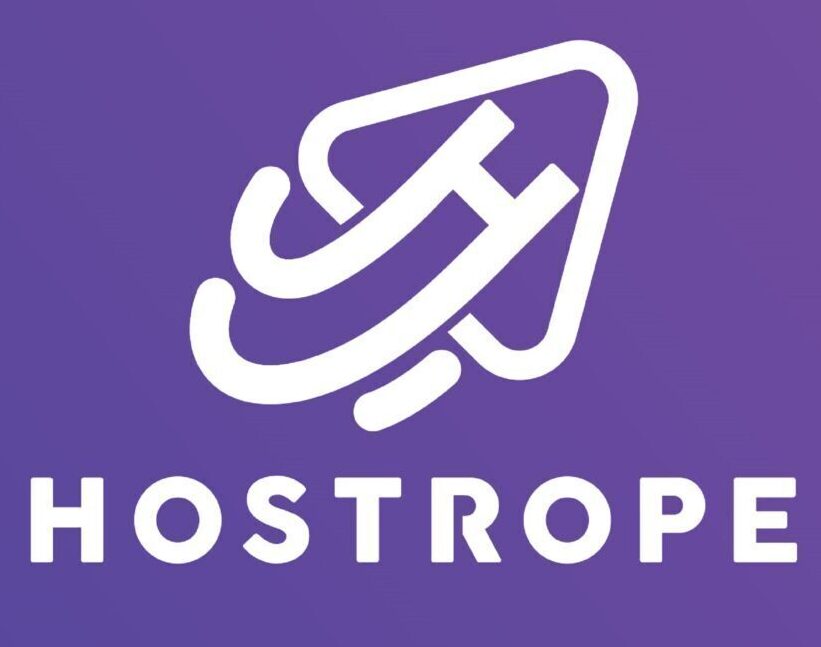In the ever-evolving world of digital marketing, it’s important to stay up-to-date on the latest trends and strategies. One such strategy is search engine optimization (SEO), which can help you maximize your website’s visibility and authority. In this comprehensive guide, we’ll dive into what SEO is and why it’s important, as well as provide an overview of the steps involved in optimizing your website.
Introduction to Search Engine Optimization
Search engine optimization (SEO) is the process of improving the visibility and ranking of a website or web page in search engine results pages (SERPs). SEO can be done on-page (on the website itself) and off-page (on other websites).
The goal of SEO is to improve the visibility and ranking of a website or web page in search engine results pages (SERPs), with the aim of increasing traffic to the site.
SEO is a long-term strategy, and it takes time to see results. However, with a well-optimized website, you can expect to see an increase in your organic traffic over time.
To get started with SEO, you need to understand the basics. This includes understanding how search engines work, what people are searching for, and how to optimize your website for better visibility.
Here are some introductory articles on SEO to get you started:
The Comprehensive Guide To Search Engine Optimization: Understanding SEO and Its Steps
What is SEO?
SEO stands for “search engine optimization.” It is the process of getting traffic from the “free,” “organic,” “editorial” or “natural” search results on search engines.
When it comes to SEO, there are a lot of different factors that can impact your ranking in search engine results pages (SERPs).
The main goal of SEO is to improve your ranking in SERPs so that you can get more traffic to your website.
There are a lot of different techniques that you can use to improve your SEO. But, at its core, SEO is all about making sure your website is relevant and authoritative for the keywords that people are searching for.
To do this, you need to make sure you have high-quality content on your site that is optimized for the keywords you want to rank for. You also need to make sure your website is structured in a way that makes it easy for search engines to understand.
And, finally, you need to promote your website so that people know it exists and will actually visit it.
SEO can be a complex topic, but we hope this guide has given you a better understanding of what it is and how it works.
Types of SEO
When it comes to SEO, there are different types that you should be aware of. Here are the different types of SEO:
1. On-page SEO – This type of optimization deals with the content and design of your website. It includes things like optimizing your title tags, meta descriptions, and header tags. It also deals with making sure your website’s structure is search engine friendly.
2. Off-page SEO – This type of optimization deals with the promotion of your website through other channels. It includes things like link building and social media marketing.
3. Technical SEO – This type of optimization deals with the technical aspects of your website. It includes things like optimizing your site’s code and ensuring your server is set up correctly.
4. Local SEO – This type of optimization is for businesses that want to rank higher in local search results. It includes things like optimizing your Google My Business listing and claiming your business on directories.
5. Ecommerce SEO – This type of optimization is for businesses that have an online store. It includes things like optimizing product pages for keywords and setting up Google Shopping campaigns.
Benefits of SEO
SEO can be extremely beneficial to any business that relies on the internet for customers or sales. The main benefit of SEO is that it can help you to rank higher in search engine results pages (SERPs), which can in turn lead to increased web traffic and exposure for your business. Additionally, SEO can help to improve click-through rates (CTRs) from SERPs, as well as organic search results, which can also lead to more sales or conversions for your business. Finally, SEO can help build brand awareness and equity online, which can be valuable assets for any business.
Steps Involved in SEO
There are a lot of steps involved in SEO, and it can be overwhelming at first. But, once you understand the basics, it’s not so bad. Here is a breakdown of the most important things you need to do in order to optimize your site for search engines:
1. Research your keywords. This is perhaps the most important step in SEO. You need to find out what people are actually searching for when they use search engines. There are a number of tools you can use to research keywords, including Google AdWords Keyword Planner and Wordtracker.
2. Use keyword-rich titles and descriptions. Once you know which keywords to target, make sure to use them in your title and description tags on your website. This will help search engines understand what your website is about and match it with relevant searches.
3. Optimize your website content. In addition to using keywords throughout your website, you also need to make sure that your content is well-written and informative. Search engines favor websites with high-quality content, so be sure to put some time and effort into this area.
4. Build links. Links are one of the most important factors in SEO. The more high-quality links you have pointing back to your website, the higher you will rank in search engine results pages (SERPs). There are a number of ways to build links, such as guest blogging, directory submission, and social media outreach.
– Keyword Research
There are a variety of methods for conducting keyword research, and the best approach depends on your individual needs and goals. However, all methods share a common goal: to identify the terms and phrases that potential customers are using to search for products or services like yours.
Once you’ve identified relevant keywords, you can incorporate them into your website content in a way that is both natural and effective. In addition, incorporating keywords into your site’s metadata (title tags, meta descriptions, etc.) will help your site rank higher in search engine results pages (SERPs).
To get started with keyword research, consider using a tool like Google AdWords Keyword Planner or Moz Keyword Explorer. These tools will help you generate lists of relevant keywords and track important metrics like search volume and competition level.
– On-page Optimization
Search engine optimization (SEO) is the process of improving the ranking of a website on search engines. The higher the ranking, the more likely people are to find the website.
There are two types of SEO: on-page and off-page. On-page SEO refers to the factors on a website that can be optimized to improve its ranking on search engines. Off-page SEO refers to the factors outside of a website that can be optimized to improve its ranking.
The most important factor in on-page SEO is keyword density, which is the number of times a keyword appears on a page divided by the total number of words on the page. Keyword density should be kept between 1% and 2%.
Other important on-page SEO factors include title tags, meta tags, header tags, and image alt text. These elements should all contain keywords related to the content of the page.
Off-page SEO includes link building, which is when other websites link to your website. The more links you have, the higher your ranking will be. Link building can be done by submitting articles to article directories, participating in forums, and leaving comments on blogs.
– Off-page Optimization
Off-page optimization is the process of optimizing a website for the search engines with the goal of improving the visibility and organic search results of that site. It involves optimizing the website’s title, description, keywords, and other elements to ensure that it is properly indexed by the search engines. Additionally, off-page optimization often includes link building, which is the process of acquiring links from other websites back to your own.
The goal of off-page optimization is to improve the visibility and organic search results of your website in the search engines. This can be accomplished by optimizing your website’s title, description, keywords, and other elements to ensure that it is properly indexed by the search engines. Additionally, off-page optimization often includes link building, which is the process of acquiring links from other websites back to your own.
Link building is an important part of off-page optimization because it helps to improve your website’s authority and credibility in the eyes of the search engines. The more high-quality links you have pointing back to your site, the better your chances are of ranking well in the search results. However, it’s important to build links naturally and avoid any tactics that could be considered spammy or black hat by the search engines.
Some common off-page optimization techniques include:
1) Creating informative and keyword-rich content that others will want to link to;
2) Participating in online forums and discussion groups related to your niche
– Content Creation & Promotion
Creating content is one of the most important steps in SEO. Not only does it give search engine crawlers something to index, but it also provides users with the information they’re looking for. Creating high-quality, keyword rich content will help your website rank higher in search results and draw organic traffic.
When creating content, be sure to:
– Include relevant keywords throughout the text
– Make use of headings and subheadings
– Use images, infographics, and videos
– Optimize your title tags and meta descriptions
Once your content is created, you need to promote it. Here are some tips:
– Share your content on social media platforms like Twitter, Facebook, and LinkedIn
– Reach out to influencers in your industry and ask them to share your article
– Submit your article to directories and forums
– Local SEO
SEO is the process of optimizing a website for Google search with the goal of earning higher web traffic levels and improving the visibility of the site.
There are many different factors that go into how Google ranks a website on its SERP (search engine results page), but some of the primary considerations include things like on-page content, off-page SEO, link building, and keyword research.
Local SEO is a subset of general SEO that focuses specifically on optimizing a website to rank higher in google searches for people in a specific geographic area. This can be accomplished through things like claiming and optimizing your Google My Business listing, making sure your NAP (name, address, phone number) information is consistent across the web, and building citations with local directories and online business listings.
If you’re looking to improve your website’s ranking in google searches within your service area, then Local SEO is definitely something you should focus on.
– Technical SEO
Technical SEO refers to optimizing your website for the search engines. This includes optimizing your website for the keywords that people are searching for, as well as making sure that your website is accessible to the search engines. Technical SEO can be a bit of a challenge, but it’s worth it if you want to make sure that your website is visible in the search results.
There are a few things that you need to do in order to optimize your website for the search engines. First, you need to choose the right keywords. Keywords are the words or phrases that people use when they search for something on the internet. You need to choose keywords that are relevant to your business and that have a high search volume.
Next, you need to make sure that your website is accessible to the search engines. This means making sure that all of your pages are indexed by the search engines. You can do this by submitting your sitemap to the major search engines. Finally, you need to make sure that your website is fast and responsive. Search engines prefer websites that load quickly and don’t have any errors. By following these tips, you can make sure that your website is optimized for the search engines and that you’ll get more traffic from organic searches.
Analyzing & Reporting Results
Search engine optimization is a process with many different steps, but one of the most important is analyzing and reporting results. Without properly analyzing your SEO efforts, you won’t be able to understand what’s working and what’s not. And without regular reports, you won’t be able to track your progress over time.
There are a number of different ways to analyze and report on SEO results. But before you can start doing that, you need to make sure that you’re tracking the right metrics. Otherwise, you’ll just be spinning your wheels without getting anywhere.
So, what are the right metrics to track? It depends on your goals, but some common ones include:
-Keyword rankings: How well is your website ranking for the keywords you’re targeting?
-Organic traffic: How much traffic are you getting from organic search results?
-Conversions: How many visitors are taking the desired action on your website?
-Bounce rate: What percentage of visitors are leaving your website after only viewing one page?
-Time on site: How long are visitors spending on your website?
Once you’ve decided which metrics to track, there are a few different ways to do it. One option is to use Google Analytics. This free tool from Google can give you a wealth of data about your website traffic, including where it’s coming from and how users are interacting with your site. Just create a free account and add the Analytics code to your site
Conclusion
SEO is a complex process, but with the right knowledge and dedication it can make all the difference in your website’s performance. We hope this comprehensive guide has helped you understand SEO better, as well as its individual steps so that you can take action to implement them. If done correctly, SEO should help boost traffic to your site and get more people interested in what you have to offer. So don’t be intimidated – start optimizing your page today!






